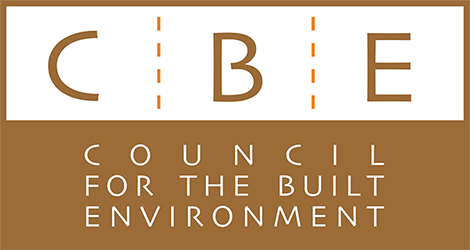UNESCO Africa Engineering Week and Its Symbolism for the Built Environment Sector
Recently, the Council for the Built Environment together with the Department of Public Works and Infrastructure hosted the Built Environment Climate Change Indaba in Durban, which was in the main aimed at galvanising the built environment profession to in South Africa to start leading the discourse about just urban transition, resilient infrastructure, facilitate the training of future built environment practitioners who are conscious about the impact of climate change on society, evidence based infrastructure development and generate new knowledge and insight geared towards reducing and mitigating the impact of climate change in the Built Environment.
As you may be aware, UNESCO Africa Engineering Week 2023 is fast approaching, and I strongly believe that hosting this event in our country would have a profound impact on our engineering community and the broader society. This annual event serves as an opportunity to celebrate the achievements of engineers worldwide and foster greater public awareness of the field.
In the context of South Africa, the built environment sector plays a significant role in driving economic growth, infrastructure development, and social progress. The engineering profession is at the forefront of this transformation, contributing expertise and solutions to address the diverse challenges faced by our nation. Our engineers are responsible for designing and constructing critical infrastructure, including transportation networks, water and sanitation systems, energy facilities, and buildings that shape the urban landscape. Their technical knowledge and innovative thinking are instrumental in driving sustainable development, enhancing quality of life, and ensuring the safety and well-being of our communities.
Moreover, the symbolism associated with South Africa’s built environment sector, particularly the engineering profession, cannot be overstated. Our country has a rich history of engineering feats that have shaped our landscape and contributed to our growth and development. From the iconic Nelson Mandela Bridge and a calabash inspired Soccer City Stadium in Johannesburg to the state-of-the-art Cape Town Stadium, Mose Mabhida Stadium and picturesque Nelson Mandala Bay, Musina Ring Road in Polokwane, Mouth Edgecombe Interchange in eThekwini, and our built environment stands as a testament to the ingenuity, creativity, and engineering prowess of our professionals.
By hosting UNESCO Africa Engineering Week 2023, we would have a unique opportunity to showcase these achievements to the global engineering community. This event would serve as a platform for fostering knowledge exchange, cooperation, and collaboration among engineers from different parts of the world. It would also open doors for partnerships and investment opportunities, which could further stimulate growth and innovation within our sector. The knowledge gained, partnerships formed, and lessons learned during this event would have a lasting effect on our professionals, institutions, and industry. It would inspire the next generation of engineers, built environment professionals in general and encourage them to push boundaries, reimagine possibilities, and create a sustainable built environment for future generations.
Moreover, UNESCO Africa Engineering Week 2023 would provide a platform for addressing some of the pressing challenges facing our industry. From sustainable infrastructure development to the promotion of diversity and inclusion, these discussions and knowledge-sharing sessions can pave the way for the implementation of best practices and innovative solutions. By bringing together professionals, policymakers, and stakeholders, we can collectively work towards a more sustainable, equitable, and resilient built environment.
In addition to the professional benefits, hosting UNESCO Africa Engineering Week 2023 would boost our country’s international reputation and position South Africa as a hub of engineering excellence. The event would attract global attention and serve as a catalyst for attracting international experts, investors, and opportunities. This, in turn, would contribute to the growth of our economy and the creation of job opportunities in the engineering and related sectors.
However, it is essential to recognize the challenges that our industry faces, such as the need for continuous professional development, the shortage of skilled professionals in certain areas, and the necessity to embrace new technologies and sustainable practices. By addressing these challenges collectively, we can ensure that South Africa’s built environment sector remains at the forefront of innovation and meets the evolving needs of society.
In conclusion, I strongly believe that the UNESCO Africa Engineering Week 2023 offers immense potential for collaboration, knowledge exchange, and capacity building. By fostering partnerships between local and international engineering institutions, we can tap into a wealth of expertise, best practices, and technological advancements from around the globe. This exchange of ideas and collaboration will not only enhance the skills and capabilities of our engineers but also strengthen the sector as a whole and contribute to the vision of creating suitable human settlements.
Issued by:
Dr. Msizi Myeza
Chief Executive Officer
Council for the Built Environment (CBE)
Tel: 012 3463985
Enquiries:
Ms. Nosizwe Mokoena
Stakeholder Engagement Specialist and Communication: CBE
Mobile: 078 415 9211
Email: nosizwe@cbe.org.za
Ms. Sinah Ndala
Communication Associate: CBE
Email: sinah@cbe.org.za
